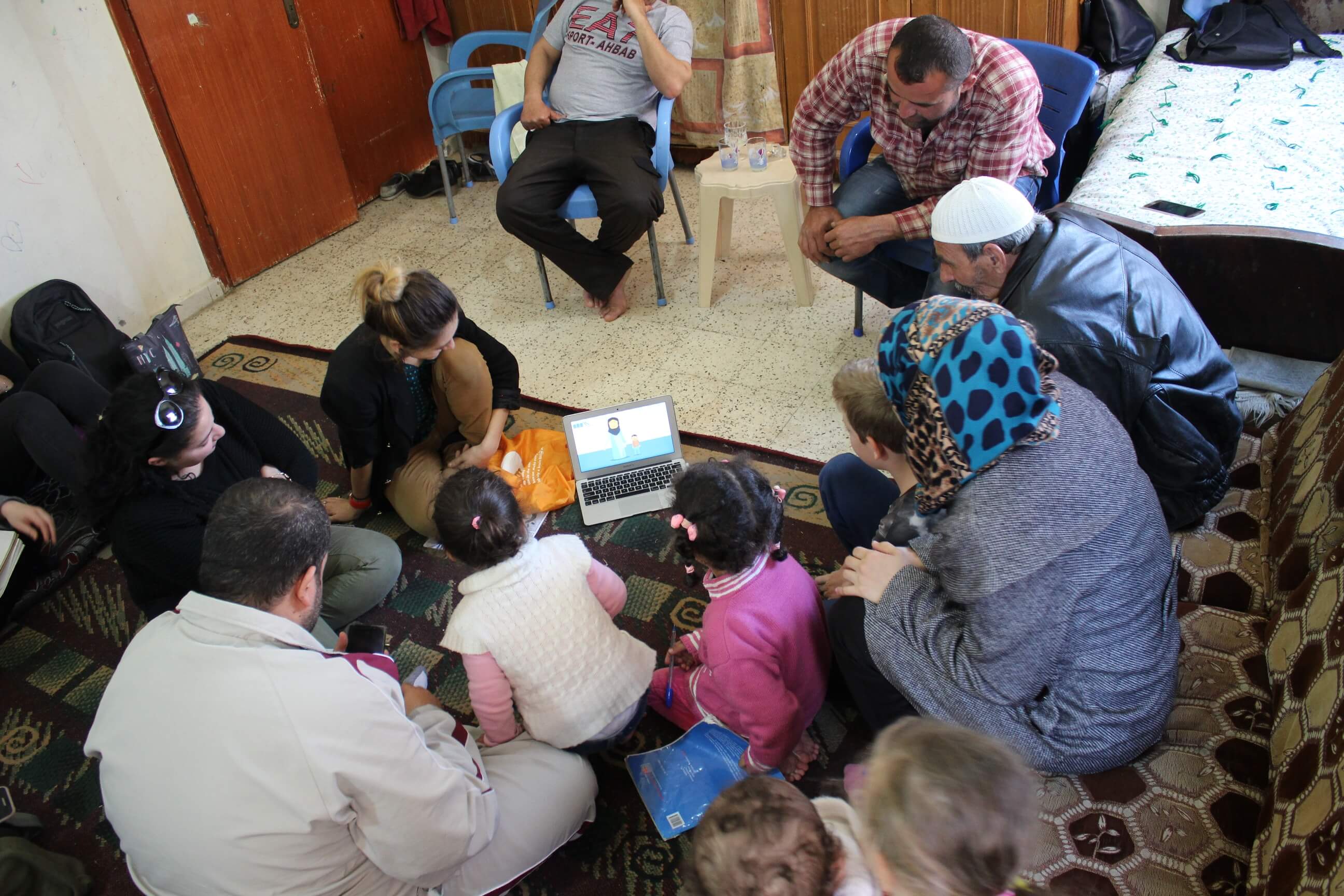The CDAC Networks Hannah Murphy highlights the importance of communicating when trying to spark innovation, especially as each lab is mapping its own journey to achieve this.
In October 2017, the Start Network launched four innovation labs in countries which were prone to natural disaster, with the aim to help local communites develop ways to prepare. The four labs are in Bangladesh, Jordan, Kenya and the Philippines. The Start Network and the CDAC Network are jointly managing the innovation labs programme which is funded by UK Aid and will end in March 2019. The CDAC Network's Hannah Murphy posted a blog on their website (below) highlighting the importance of communicating when trying to spark innovation, especially as each lab is mapping its own journey to achieve this.
It’s difficult nowadays to read an article, report or proposal that does not contain the word ‘innovation’. The term is regularly used in organisational vocabulary to imply forward thinking, a sense of progress, positive change and ambition, and, confusingly, can mean different things in different contexts.
With such broad meaning, the word is not easy to translate. Definitions include 'change', 'reorganisation', 'alteration', 'restructuring', 'new methods', 'a change of direction', 'break with tradition', 'modernisation' - to name a few. In many languages a single, equivalent term does not exist. Getting across what innovation means in different contexts for different people requires clear and careful explanation, a decoding of the word, so it makes sense to the intended audience. Breaking down the word becomes even more complicated when you take innovation out of an organisational context and look at it from a grassroots, community perspective.
For the Disasters and Emergencies Preparedness Programme (DEPP) Innovation Labs tasked with creating a favourable environment for community-led innovation, explaining to audiences unfamiliar with the term what it means in relation to their daily lives and how they can contribute to the process is far from straight forward. Labs, however, are finding new and creative ways to convey the concept, uncover new sources of innovation, encourage participation and convince people that this force can be found in their every day problem-solving strategies and coping mechanisms.
Innovation in this context is happening within complex partnerships, among new-found colleagues, and with people facing extreme challenges. Therefore, methods and means of communication should be designed to serve the needs of those involved as well as the process, and encourage the sharing of ideas, particularly between groups and individuals who are not used to working together in such different ways. Messaging needs to be clear, consistent, action-oriented and objective-focused, as well as strike a cord with the people who will ultimately drive the programme.
Within the global humanitarian landscape, innovation is a growing, thriving field dedicated to driving improvements in areas such as preparedness and response, logistics, quality and speed of services, accountability and community engagement. Various materials, including from other sectors, provide guidance, best practice and new ideas for harnessing innovation for better outcomes. If we look closely, these materials are written from an organisational perspective. There is very little noted about community-led innovation. When it comes to working alongside communities in this capacity, a lot of these readily available reports and guides can fall short. Why? Each community has its own language, methods, reasons and means for innovating. In crisis situations, the human spirit shows extraordinary ingenuity and resilience; people find pragmatic, every day solutions to survive and rebuild their lives with very few resources.
Community-led innovation differs to organisational innovation in the fact it comes about through tacit knowledge, cultural practice, shared values and experience, long-standing social networks, and out of necessity. In instances where communities have been organising and managing extreme challenges for decades, innovation processes are subtle, continual and do not follow one model or formula. The word ‘community’ itself is complex and can mean a group in a shared geographic location or a disparate group of people coalescing around a common goal. People are motivated to come together to find ways to communicate, collaborate, progress and achieve results in different ways depending on their circumstances. These processes are not easily captured and hard to tap into.
So it follows ways of communicating with communities, fundamental to successful innovation in humanitarian preparedness, needs to be carefully attuned to the surrounding environment. Rapid proliferation of technology is a strong enabler of innovation, allowing people to connect, access information faster, have a say and work together more efficiently, but these fast evolving networks and lines of communication also require better honed listening methods, clearer two-way channels and an ability to tune into people’s different and particular frequencies.
For DEPP Innovation Labs, translating the term 'innovation' requires a carefully nuanced, practicable approach, and, perhaps, greater space for trial and error. Each lab’s approach is as unique as the different communities involved. In this context, language and channels matter and can be the make or break of sustaining community engagement and determining the overall impact of the project. In this situation, innovation cannot be defined or applied broadly. The term needs to be inclusive, fit for purpose. It needs to motivate and inspire, rather than alienate and draw confusion. There is no right or wrong method. And, there is certainly no dictionary to hand.
This blog was first published on the cdacnetwork.org website on the 6th February 2018.
Read more about the DEPP innovation labs programme
Read about the launch of the four innovation labs in October 2017.
Read about the Start Networks Disasters and Emergencies Preparedness Programme

